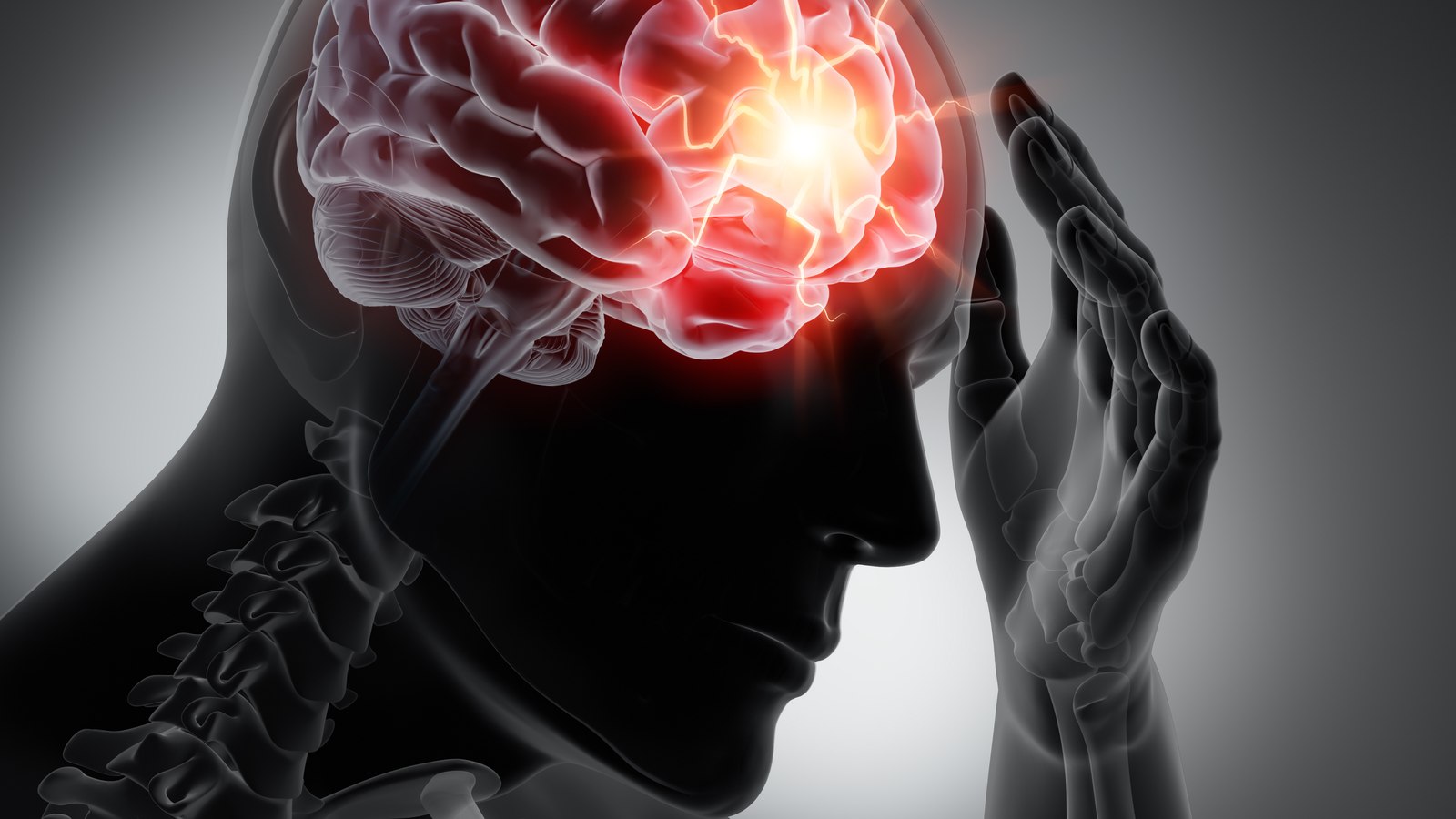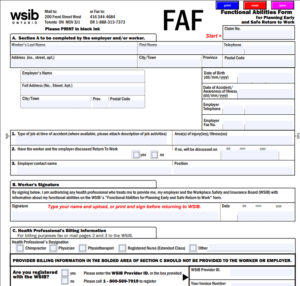Diving deep into the realm of traumatic brain injuries (TBIs), Independent Medical Examinations (IMEs) stand as a pivotal tool for precise diagnosis, guiding both treatment and legal pathways.
In this exploration, we dig into the nuances of TBIs, spanning from their definitions to the intricacies of their diagnostic methods.
Discover the clarity with which MRI scans can reveal TBIs, and understand the subtle differences between TBIs and acquired brain injuries (ABIs).
Through this comprehensive guide, our goal is to illuminate the vital role of IMEs, showcasing the strides and innovations in TBI diagnosis and care.
What is a Traumatic Brain Injury (TBI)?
A traumatic brain injury (TBI) is a disruption in brain function caused by an external force. It can result from a variety of events, such as a blow to the head, a fall, or a motor vehicle accident. TBIs can range in severity from mild concussions to severe injuries that can lead to permanent disability or even death.
There are different types of TBIs, including concussions, fractures, and contusions. A concussion is the most common type of TBI and is typically a mild injury that can cause temporary dysfunction in brain function. Fractures, on the other hand, occur when the skull is broken, which can result in damage to the brain. Contusions refer to bruising of the brain tissue, often caused by the brain hitting the inside of the skull during a traumatic event.
TBIs can have a significant impact on a person’s physical, cognitive, and psychological well-being. Depending on the severity of the injury, individuals may experience a range of symptoms, including headaches, dizziness, memory problems, difficulty concentrating, mood swings, and changes in behavior.
It is crucial to accurately diagnose and assess TBIs to ensure appropriate treatment and support for those affected. Independent medical examinations (IMEs) play a vital role in this process, providing a neutral and impartial evaluation of an individual’s condition to determine the extent of their injury and the necessary steps for their recovery.
The Significance of Independent Medical Examinations (IMEs) for TBIs
Independent Medical Examinations (IMEs) play a crucial role in assessing and evaluating the extent of Traumatic Brain Injuries (TBIs). These examinations are typically conducted by a neutral and independent medical expert who specializes in traumatic brain injuries. The purpose of IMEs is to provide an unbiased and comprehensive evaluation of the individual’s condition, helping to determine the severity of the injury, potential long-term effects, and appropriate treatment plans.
One of the key reasons why IMEs are significant for TBIs is their role in legal cases. In situations where the TBI is the result of an accident or an incident that may lead to a legal claim, IMEs can provide objective medical evidence to support or dispute the claims made by either party. The independent expert reviews medical records, conducts interviews and examinations, and may perform diagnostic tests to gather the necessary information for an accurate assessment.
IMEs are also essential for insurance claims related to TBIs. Insurance companies often require these independent evaluations to determine the validity of the claim and the appropriate compensation. By having an unbiased assessment from a qualified medical expert, insurance providers can accurately assess the extent of the injury, the impact on the individual’s daily life and future earnings potential, and make informed decisions regarding coverage and compensation.
Furthermore, IMEs are valuable for treatment planning for TBIs. The independent medical expert can assess the individual’s cognitive and functional abilities, identify areas of impairment, and recommend appropriate treatment strategies. This may include rehabilitation programs, cognitive therapy, medications, or other specialized interventions tailored to the individual’s specific needs. By conducting a thorough evaluation, IMEs help ensure that individuals with TBIs receive appropriate and effective care.
Independent medical examinations are of utmost significance in the assessment and evaluation of traumatic brain injuries. They provide objective and expert opinions crucial for legal cases, insurance claims, and treatment planning, thereby ensuring accurate diagnosis, appropriate compensation, and effective care for individuals impacted by TBIs.
Testing for Traumatic Brain Injuries
Traumatic brain injuries (TBIs) can be challenging to diagnose due to their complex nature and varying symptoms. However, there are several methods commonly used to test for TBIs and assess their severity. These tests are essential in accurately diagnosing and managing TBIs.
Neurological Examinations
Neurological examinations involve a comprehensive assessment of an individual’s neurological functioning. The medical professional will evaluate the patient’s reflexes, balance, coordination, and sensory responses. They will also assess the patient’s muscle strength, speech, and cognitive abilities. Through these examinations, doctors can identify any abnormalities or deficits that may indicate a TBI.
Cognitive Tests
Cognitive tests are designed to assess an individual’s cognitive abilities and functioning. These tests measure various aspects of cognition, including memory, attention, problem-solving, and language skills. By evaluating these cognitive domains, medical professionals can identify any impairments or deficits that may be indicative of a TBI.
Imaging Studies
Imaging studies play a crucial role in diagnosing TBIs and determining their severity. One commonly used imaging technique is a computed tomography (CT) scan, which provides detailed cross-sectional images of the brain. CT scans can help detect visible abnormalities, such as fractures or bleeding, that are associated with TBIs.
While CT scans are highly effective in identifying structural damage, they are less sensitive to functional changes in the brain. Magnetic resonance imaging (MRI) scans, on the other hand, offer more detailed images of the brain and can help identify both structural and functional abnormalities. However, it is important to note that not all TBIs may be visible on an MRI scan, especially in mild cases where the structural damage may be subtle.
In recent years, advanced imaging techniques such as diffusion tensor imaging (DTI) and functional MRI (fMRI) have shown promise in enhancing TBI detection and assessment. DTI can measure the integrity of white matter fibers within the brain, providing valuable insights into the extent of damage caused by a TBI. fMRI, on the other hand, can map brain activity by measuring changes in blood flow, allowing researchers and medical professionals to understand how TBIs impact cognitive functioning.
Testing for traumatic brain injuries involves a comprehensive approach that includes neurological examinations, cognitive tests, and imaging studies. These tests help medical professionals assess the severity of TBIs, identify any abnormalities or deficits, and develop appropriate treatment plans. Ongoing research and advancements in imaging technologies are likely to further improve the accuracy and effectiveness of TBI testing in the future.
Can Traumatic Brain Injuries be Seen in an MRI?
Traumatic brain injuries (TBIs) can sometimes be visualized through the use of magnetic resonance imaging (MRI) scans. MRI scans are medical imaging techniques that utilize powerful magnets and radio waves to create detailed images of the brain.
While MRI scans can detect structural abnormalities in the brain, they may not always capture subtle damages or functional changes that occur in TBIs. This is because TBIs can involve microscopic injuries or disruptions in neural connections, which may not be adequately captured by traditional MRI scans.
However, advancements in imaging technology have led to the development of specialized MRI techniques that can improve TBI detection. One such technique is diffusion tensor imaging (DTI), which measures the movement of water molecules in the brain and can identify areas of axonal injury or disconnection. DTI can provide valuable information about the integrity of white matter tracts in the brain, which are often affected in TBIs.
Another technique that is being explored for TBI detection is functional MRI (fMRI). fMRI measures changes in blood flow and oxygenation patterns in the brain, allowing researchers to assess brain activity and connectivity. By comparing fMRI results before and after a suspected TBI, healthcare professionals can identify regions of the brain that may have been affected by the injury.
It is important to note that while MRI scans can be useful in detecting and assessing TBIs, they should be used in conjunction with other diagnostic tools and clinical assessments. Healthcare professionals must consider the patient’s symptoms, medical history, and clinical examination findings to make an accurate diagnosis of a TBI.
MRI scans can provide valuable insights into traumatic brain injuries, but they may not always capture all the complexities of such injuries. Specialized MRI techniques like DTI and fMRI offer promising advancements in TBI detection, but they should be used in conjunction with other diagnostic tools and assessments for a comprehensive evaluation of the injury. Ongoing research and advancements in imaging technology will continue to improve our ability to detect and understand TBIs.
Differentiating Traumatic Brain Injuries (TBI) and Acquired Brain Injuries (ABI)
Traumatic Brain Injuries (TBI) and Acquired Brain Injuries (ABI) are two distinct categories of brain injuries with different causes and implications. It is crucial to understand the differences between them in order to accurately diagnose and treat patients.
A traumatic brain injury (TBI) occurs as a result of a sudden external force causing damage to the brain. This force can be caused by incidents such as falls, car accidents, or sports-related injuries. TBIs are often characterized by a wide range of symptoms, including headaches, memory loss, difficulty concentrating, and changes in behavior or mood.
On the other hand, an acquired brain injury (ABI) refers to brain damage caused by non-traumatic events such as strokes, infections, or tumors. Unlike TBIs, ABIs do not result from a direct external force. ABIs can also lead to a variety of symptoms, including motor impairments, language difficulties, and cognitive deficits.
Diagnosing and treating TBIs and ABIs pose unique challenges. TBIs are often more visible and can be diagnosed through various neuroimaging techniques, as well as physical and cognitive evaluations. However, the subtler symptoms of ABIs may require more extensive testing and a comprehensive evaluation of a patient’s medical history.
The treatment approaches for TBIs and ABIs differ.
Therapies for TBIs often revolve around addressing the immediate damage and promoting recovery. This may involve medications, physical therapy, and cognitive rehabilitation. In contrast, treating ABIs generally involves managing the underlying cause and providing supportive care to address the specific symptoms and functional impairments.
It is crucial to differentiate between traumatic brain injuries (TBI) and acquired brain injuries (ABI) in order to provide appropriate diagnosis and treatment. While TBIs result from external force trauma and have distinct symptoms, ABIs are caused by non-traumatic events and may present with different challenges in assessment and management. Further research and advancements in diagnostic tools will continue to improve the understanding and treatment outcomes for both TBIs and ABIs.
Conclusion
Independent medical examinations (IMEs) play a crucial role in accurately diagnosing and assessing traumatic brain injuries (TBIs). TBIs are disruptions in brain function caused by external forces and can have significant long-term effects. IMEs conducted by neutral and independent medical experts are essential for legal cases, insurance claims, and treatment plans related to TBIs.
Testing for TBIs involves various methods, such as neurological examinations, cognitive tests, and imaging studies. The Glasgow Coma Scale is commonly used to assess the severity of TBIs, while neuropsychological testing measures cognitive deficits associated with TBIs. While MRI scans can detect structural abnormalities, they may not always capture subtle damages or functional changes in the brain. Advanced imaging techniques like diffusion tensor imaging and functional MRI show promise in improving TBI detection.
Differentiating TBIs from acquired brain injuries (ABIs) is important, as TBIs result from trauma, while ABIs are caused by non-traumatic events like strokes or infections. Diagnosing and treating TBIs and ABIs present unique challenges.
In conclusion, the accurate diagnosis and assessment of TBIs through IMEs are critical for legal, insurance, and treatment purposes. Ongoing research and advancements in imaging technologies are needed to enhance TBI detection and management. By understanding the significance of IMEs and the nuances of TBIs, we can better support those affected by these injuries.
Further Considerations
Complex Diagnostic Process: Diagnosing traumatic brain injuries can be challenging due to the complex nature of the condition. There are various factors that need to be considered, such as the patient’s medical history, physical symptoms, and cognitive functioning. Additionally, the symptoms of a traumatic brain injury can be similar to other conditions, making it difficult to distinguish and accurately diagnose.
Subjectivity of Symptoms: Symptoms of a traumatic brain injury can vary greatly from person to person, and they may not always be immediately apparent. Some individuals may experience physical symptoms such as headaches or dizziness, while others may exhibit cognitive or emotional changes. However, these symptoms can also be attributed to other factors, further complicating the diagnostic process.
Time-Dependent Factors: The impact of a traumatic brain injury may not be immediately evident, and symptoms can evolve and worsen over time. This poses a challenge when seeking a thorough evaluation through an independent medical examination. It is important to consider the possible delayed effects and long-term consequences of a traumatic brain injury.
Objectivity of Assessments: Independent medical examinations aim to provide an objective assessment of a patient’s condition. However, when it comes to traumatic brain injuries, the subjective nature of symptoms can make it difficult to ensure complete objectivity. There is a need for experienced professionals who are knowledgeable about traumatic brain injuries to conduct unbiased assessments.
Treatment and Rehabilitation: Traumatic brain injuries often require comprehensive treatment and rehabilitation programs tailored to an individual’s specific needs. However, determining the appropriate course of treatment can be challenging without a thorough understanding of the patient’s condition. Independent medical examinations can aid in assessing the progress and effectiveness of treatment plans, but ongoing monitoring and adjustments may be necessary to ensure optimal recovery.
FAQs About Independent Medical Examinations (IMEs) for Traumatic Brain Injuries (TBIs)
How long does an independent medical examination for a TBI usually take?
The duration of an IME for a TBI can vary depending on the complexity of the case and the specific tests required. It can range from a few hours to a full day.
Who pays for an independent medical examination for a TBI?
In most cases, the party requesting the IME is responsible for covering the costs. This could be the insurance company, the legal defense team, or the plaintiff’s attorney.
Can I choose the independent medical examiner for my TBI case?
In some situations, the opposing parties may agree on a mutually acceptable independent medical examiner. However, in most cases, the examiner is chosen by the party requesting the IME.
What qualifications should an independent medical examiner have for assessing TBIs?
An independent medical examiner should have expertise and experience in neurology or a relevant specialty related to traumatic brain injuries. They should also be familiar with the latest research and diagnostic techniques in the field.
Can the findings of an independent medical examination be challenged?
Yes, the findings of an IME can be challenged in court or during negotiations. Both parties have the right to present their own expert opinions and evidence to dispute or support the IME findings.
Are independent medical examiners completely impartial?
While independent medical examiners are expected to be neutral and unbiased, it is important to recognize that they may still have their own perspectives and interpretations. Objectivity is always a goal, but complete impartiality is challenging to achieve.
Can an independent medical examination be conducted remotely or online?
In some cases, especially with advancements in telemedicine, remote independent medical examinations may be possible. However, the suitability of remote examinations depends on the specific circumstances of the case and the availability of appropriate technology.
Can multiple independent medical examinations be requested for the same TBI case?
Yes, it is possible for multiple IMEs to be requested by either party if they believe that different opinions or perspectives are needed for a comprehensive evaluation.
Is an independent medical examination conducted by a TBI specialist only?
While it is preferable for the independent medical examiner to have expertise in TBIs, it is not always possible to find a specialist. However, the examiner should at least have a solid understanding of TBI diagnosis and assessment.
How soon after a TBI should an independent medical examination be conducted?
It is generally recommended to conduct an IME as soon as possible after a TBI to capture the most accurate assessment of the initial and ongoing impacts. However, the timing may vary depending on factors such as the availability of the examiner and the stabilization of the patient’s condition.
Glossary of Terms Used in the Article
1. Traumatic Brain Injury (TBI): A disruption in brain function caused by an external force, resulting in physical, cognitive, and emotional impairments.
2. Concussion: A mild form of TBI caused by a blow to the head or violent shaking of the upper body, leading to temporary loss of brain function.
3. Fracture: A TBI characterized by a break or crack in the skull bone, often resulting from direct trauma.
4. Contusion: A TBI that involves bruising or bleeding within the brain tissue due to a blunt force impact.
5. Independent Medical Examination (IME): An evaluation conducted by a neutral and independent medical expert to assess the extent of injuries and provide an unbiased opinion.
6. Neurological Examination: A systematic assessment of the nervous system’s functions, including sensory, motor, and reflex tests.
7. Cognitive Tests: Assessments that evaluate a person’s cognitive abilities, such as memory, attention, language, and problem-solving skills.
8. Imaging Studies: Diagnostic techniques, such as MRI scans, to visualize the brain’s structure and detect abnormalities.
9. Glasgow Coma Scale: A standardized tool used to assess the level of consciousness and severity of TBI based on eye-opening, verbal response, and motor response.
10. Neuropsychological Testing: Evaluations that measure cognitive deficits, emotional functioning, and behavioral changes associated with brain injuries.
11. MRI (Magnetic Resonance Imaging): A non-invasive imaging technique that uses powerful magnets and radio waves to produce detailed images of the brain’s structure.
12. Structural Abnormalities: Anomalies or deviations in the brain’s physical structure, visible in imaging techniques like MRI scans.
13. Functional Changes: Alterations in the brain’s activity levels or patterns, often resulting from TBI, and can be assessed using advanced imaging techniques.
14. Diffusion Tensor Imaging (DTI): A specialized MRI technique that measures the movement of water molecules within the brain’s white matter, allowing for the detection of microscopic disruptions.
15. Functional MRI (fMRI): An imaging technique that combines MRI with measures of brain activity, enabling the visualization of brain regions activated during specific tasks.
16. Acquired Brain Injury (ABI): Brain damage caused by non-traumatic events like strokes, infections, tumors, or oxygen deprivation.
17. Diagnosis: The process of identifying and determining the nature and cause of a medical condition or injury.
18. Treatment Plan: A comprehensive strategy outlining the medical interventions and therapies recommended to manage and address a specific medical condition.
19. Legal Cases: Disputes or claims that require legal resolution, often involving personal injury lawsuits or insurance claims related to TBIs.
20. Insurance Claims: Requests for reimbursement or compensation submitted to insurance companies to cover medical costs and financial losses resulting from a TBI.






